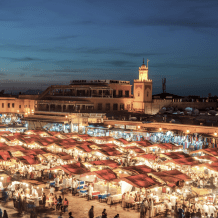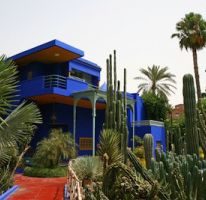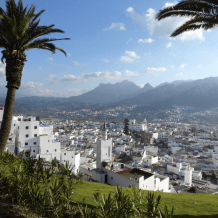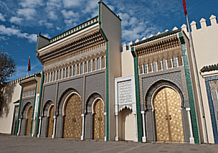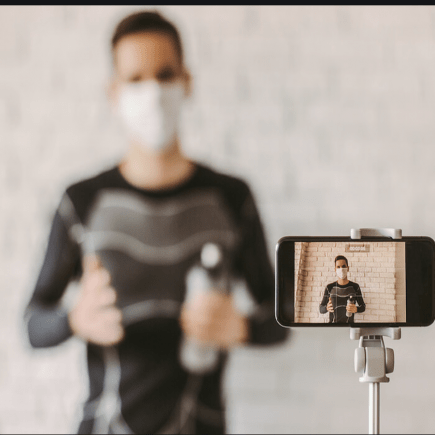
“There is a moment when you have to go from explanation to simple description,” claimed Austro-Hungarian philosopher, Ludwig Wittgenstein in “Über Gewissheit” (Of certainty). This perfectly concludes the the thoughts of many film directors, who have embarked on a creative adventure of artistic projects during the coronavirus health crisis. This is an example where Moroccan cinema has succeeded in becoming an important part of the game.
Six filmmakers took part in expressing the present day health crisis by providing six different perspectives, namely “Distance” by Mohamed Mouftakir, “Trees” by Faouzi Bensaidi, “Postcard in Corona time” by Tala Hadid, “No Conclusions” by Hakim Belabbes, “Mauvais screenplay” by Adil Fadili and “Quo Vidis Arcadya” by Yassine Marco Marroccu. Their work has offered film enthusiasts a new, artistic vision based on the only object they had: their mobile phone. In fact, these films were followed by more than one-million spectators in a hundred countries around the globe.
The Moroccan Cinema Center entrusted them with this mission, for each one to produce a short film that tells the story of this unexpected situation, express his or her feelings, and show the world how he or she views his or her daily life and situation unveiled through a smartphone, while respecting health measures, said in a statement to MAP, the director Mohamed Mouftakir.
The purpose of this initiative was to celebrate the reopening of cinemas with these six films, he said, stressing that faced with the uncertainty reigning in the sector, due to the Coronaviurs, the CCM decided to start the screening on its platform. According to the director of “L’Automne des pommiers”, his work “Distance” is a continuation of a Covid-19 trilogy. “My first similar experience was ‘Confinement’, carried out with a cell phone and projected on the internet 7 months ago as part of another project”.
Considering creation as a long process of inspiration that is part of a logic of continuity, Mouftakir lets it be known that the concept “Regards” is intended to be a sharing of a lived experience and an exploration of artistic expression, by using supports to within reach. He also unveiled that a third short film, shot in the same vibes, is in the process of “gestation” and will be entitled “Rencontre”. Also, the director Adil El Fadili told MAP that “Regards” is an “interesting” concept allowing to mark this particular period that humanity is going through.
Participating with his film “Bad scenario”, Adil El Fadili noted that this cellular experience was made concrete with “the means at hand” by joining his children to the project. “As an artist, I lived like everyone else in confinement, I wanted to express myself through art to tell and share my own experience”, he said. For this seasoned director, the cinema must keep its aesthetic and visual magic, without falling into films shot with cellphones. “I am a classic person, who watches films on the big screen, made with significant resources with an identity and a certain gaze”. Promoter of the “Regards” initiative launched during the confinement period, the CCM has since Monday, the 9th November 2020, started uploading on its platform, every 48 hours, the six participating short films, which runs up to November 19, 2020.
Promoter of Moroccan cinema, the CCM has since the start of the state of health emergency, a cinematographic program, accessible free of charge to the general public from its platform, with a screening of 98 Moroccan films (feature films and documentaries as well as four Moroccan feature films in tribute to Feue Touria Jabrane), all with the purpose of “allowing the largest number of film enthriasts in Morocco and abroad to review or discover, at the convenience of each, the wealth of Moroccan film heritage,” says the CCM in a statement.
Indeed, despite the confinement, the MCC has continued to develop its website, offering a series of Moroccan feature films. Nearly 600,000 uploads in 101 countries were made. Following this success, the Centre decided to launch a new program online starting July 14, 2020, which willl feature more than 30 short fiction films and a dozen feature-length documentaries.
The same goes for the Mediterranean Film and Human Rights Meetings Association (ARMCDH), which has also embraced digital technology. The ARMCDH organized the 9th edition of the “nuit blanche du cinéma”, devoted to the right to the environment. Scheduled for 17 and 18 July, this “dematerialized” edition was held virtually and free of charge on the ARMCDH’s online platform, in partnership with the European Union delegation in Morocco, the Heinrich Böll Foundation, the Dutch embassy in Morocco and UN Women. Documentary and fiction films, both short and feature-length, were screened in addition to the presence of a plethora of directors, experts and activists who shared their experiences and debated with the online audience.
Despite all circumstances and strict restrictions due to the COVID-19 pandemic, the Moroccan Cinema Center (MCC), has continued without hesitation supporting its audience during this harsh experience and offering rich and diverse content, even at a distance.

